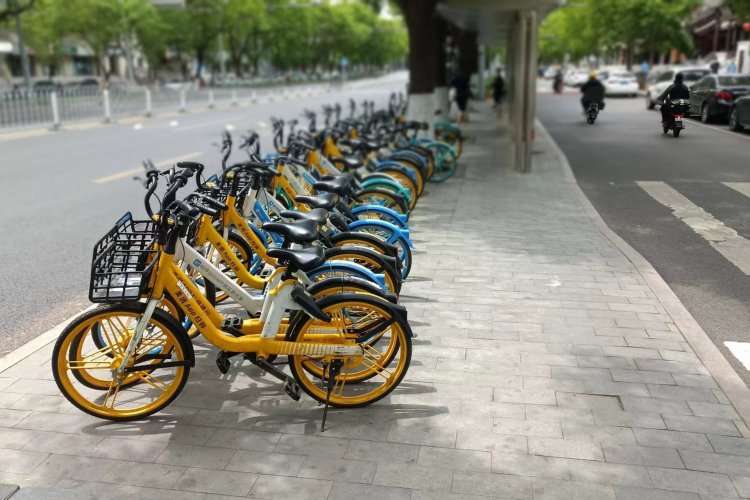Didi Integrates Public Transport Options Allowing Users to Book a Car to Meet Them at the Bus Stop
This post comes courtesy of our content partners at TechNode.
The latest updates to ride-hailing app Didi allow users to integrate their journey with public transport and hire bikes, plus “virtual meeting points” for better ride-sharing while taxi drivers are hit hard.
Map apps such as Baidu and Tencent have long since offered sophisticated journey planning in China, adding in new options such as hire bikes and ride-hailing. Now Didi is bringing in all the options into its own app to show how a long journey across town can be made up of a mix of Didi and bus, subway and bikes. With start and end points entered, the software presents a range of options with journey length and cost. Not all suggestions contain a Didi ride, but should you choose that itinerary, it’s then just one more tap to summon a Didi for that particular section of the route.

The same update also contains an improvement to the ride-sharing function that provides 2.4 million rides a day. This function allows separate users to effectively share a Didi car if going in roughly the same direction at the same point. The tweak now tells the passengers if a nearby point such as a different junction would be a better place to await the driver if it means the car and other passengers can avoid U-turns or unnecessary detours. These “virtual meeting points” should reduce waiting time as tests have shown they reduce detours by 38 percent.

Another new feature – and perhaps the most useful – allows users to hail both Express (快车) and Premier (专车) cars simultaneously.
The platform’s successes (along with Meituan’s testing) are thought to be having a severe impact on China’s taxi drivers, a report in The Paper finds (in Chinese). A reporter found 170 taxis parked up in Nanjing and began to investigate. Fleets of abandoned taxis were found elsewhere in Nanjing, including new vehicles still well within the seven-year lifespan. The Nanjing Taxi Association told The Paper that in 2017 there were 1,000 inactive taxis in the city but after continued red envelope price wars for hailing fares and driver rewards, that number had risen to 3,000. The number of rides halved from around 40 per day in Nanjing before January 2017 to around 20 a day by 2018 meaning wages for drivers dropped from RMB 5-6,000 to RMB 3-4,000 per month – dropping below the minimum wage – while still working 12-13 hour shifts.
Didi’s global network continues to expand through investments and technology sharing, meaning it now estimates that along with its partners such as Lyft and Careem in 1,000 cities, it now reaches 80 percent of the world population. The company is raising more funds for further expansion.
Images courtesy of TechNode








